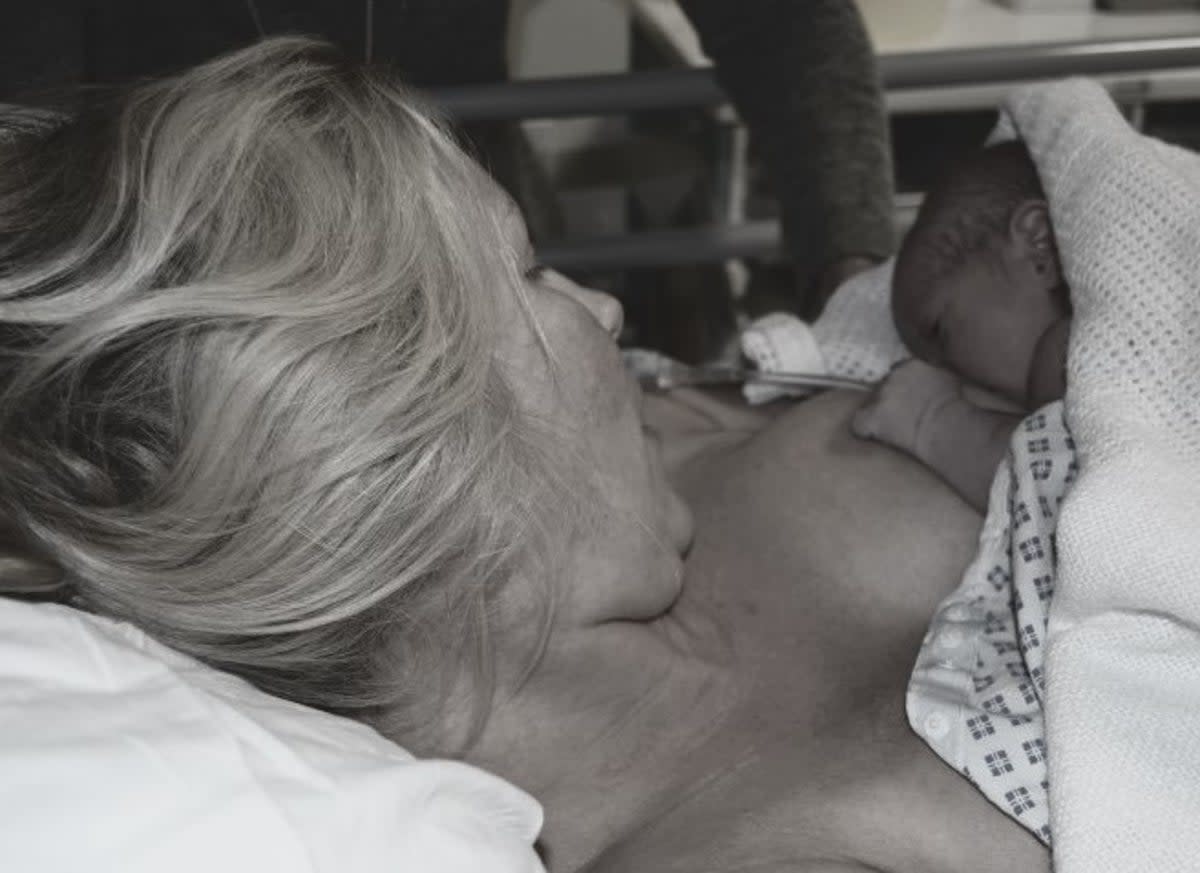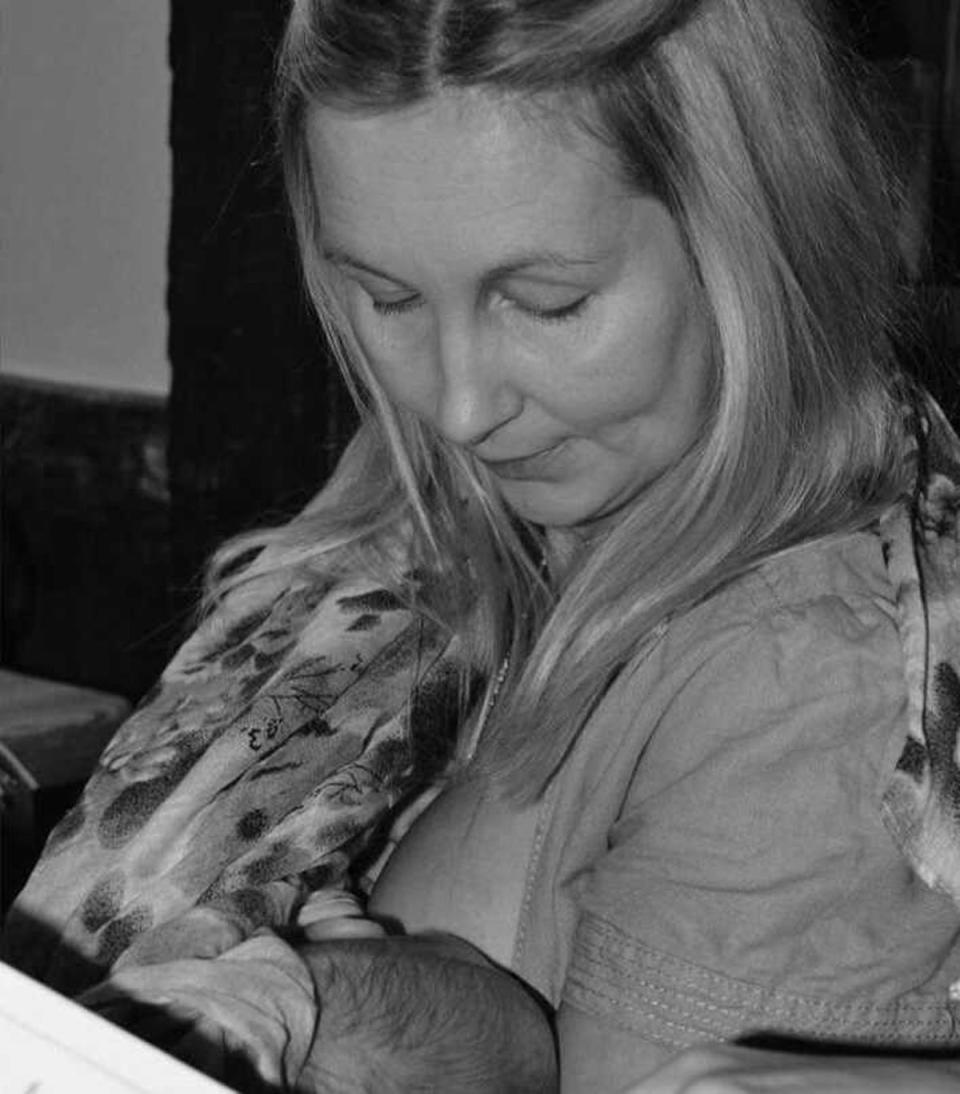‘Threadbare’ NHS maternity care will lead to tragic consequences, health experts warn

New mothers are being left dangerously at risk by “threadbare” NHS maternity care, with mental health and community services slashed, top health experts have warned.
Worrying gaps have emerged in mental health support, as the latest figures from the Royal College of Psychiatrists reveal that up to 1,200 women a year suffer from postpartum psychosis.
Donna Ockenden, who led a damning review of maternity care at the Shrewsbury and Telford Hospital NHS Trust, described the support currently available as “a house of cards” as she urged the government to improve provision for women.
In an exclusive interview with The Independent, she said: “The safety net in terms of services, one by one, has become more threadbare. I hear this from new mothers, midwives on the ground, and health-visiting colleagues.
“We’ve cut services, and therefore reduced the ability of midwives and the perinatal team to give the care that they want to give. All of these issues stack up like a house of cards, and we know how easy it is for a house of cards to fall over.”
Her fears were echoed by Dr Bill Kirkup, the author of another major review of maternity failings in East Kent, who said the paucity of support could lead to “tragic consequences”.
The Independent can reveal:
The NHS has failed to hit targets to roll out “maternal mental health hubs” to all areas by April 2024
The average waiting time for access to community mental health services for expectant and new mums was eight weeks for a first appointment in 2022-23
Some trusts have waiting times of between 15 and 30 weeks
The average wait for treatment to start in some areas was up to 50 weeks in 2022-23
Almost a fifth of referrals for mothers were rejected by community mental health services – in some areas, this was as high as 80 per cent
An average of 21 deaths per 10,000 patients were recorded by perinatal mental health services, which provide support to expectant and new mums
Three out of 18 NHS trusts reported more than 100 deaths in a year
The NHS had a target for 66,000 expectant and new mothers to receive contact from specialist mental health services by April 2024. The most recently published data, up to December, shows that 57,000 women had access – up by one-third from the previous year, but still falling short of the target.
Meanwhile, recent figures from Mbrrace UK, an organisation that looks into the causes of maternal and neonatal mortality in Britain, showed that suicide was the leading cause of death among women in the 12 months after birth.
Threadbare
In April 2019, the NHS pledged to roll out maternal mental health hubs for women, which would include those who had suffered birth trauma, to every part of England.
However, sources speaking to The Independent confirmed that the hubs are not available in every area, and in some places have even had to close due to funding cuts.
Ms Ockenden, who is currently leading an inquiry into maternity care in Nottingham, said that support services, such as health visits for struggling mothers, are now “threadbare” in many areas.
She said that, while there has been investment in maternity services of £180m a year since the first Shrewsbury report was published in 2020, “that is nowhere near enough after more than a decade of underfunding”.
Between September 2009 and January 2024, the number of health visitors in community services dropped from 8,100 to 5,627. Figures for 2022-23 show that almost 20 per cent of babies and mothers missed out on their six-to-eight-week health visitor review.
Ms Ockenden warned that she’d been told that these services had “vaporised” in the last 10 years, with workers unable to provide comprehensive support for newborns and mothers.
She called for the urgent reintroduction of the Sure Start programme of community and family hubs, no more than “a pram-push away”, where women and families could access a range of services on their doorstep including help and advice relating to employment, childcare, health and education.
Most of these centres have had their funding cut or been closed down, which Ms Ockenden said was “extremely shortsighted”.
Dr Kirkup, leader of the East Kent investigation, said mental health support services are “very patchy”.
“People are not being well cared for, just because of lack of mental health resources ... with the nature of postnatal support, because of the pressure on services, some places have slipped from the standards that we used to provide,” he said. “It’s difficult to ask for that support, it’s not readily available. It’s very easy for them to be forgotten. It can have tragic consequences.”
NHS England mental health director Claire Murdoch said that nine in 10 mothers access support during pregnancy, and that the NHS has opened 39 maternal mental health hubs so far. She said: “These teams include highly trained, specialist staff who offer support to women with moderate to severe or complex mental health needs, and now offer the option of treatment at home or at local family centres in the community.
“In a mental health emergency, a pregnant woman or new mum can also go to their local A&E department, where specialised mental health liaison services will be able to help.”

‘Cruelly wrenched from our lives’
It was 2017 when, cradling her grandson, Lyn Richardson discovered that her daughter Rebecca Kruza had taken her own life just 8 months after giving birth.
Rebecca had suffered a traumatic birth while under the care of East Kent Hospitals NHS Foundation Trust, which has also been at the centre of a major scandal. Her mother said: “She was utterly traumatised by [the] delivery.”
This was the beginning of months of struggle for Rebecca, who was “exhausted” and having to “battle” to obtain care for her developing depression and anxiety, according to her mother.
One round of antidepressant medication did not work for her, and she was then referred for cognitive behavioural therapy (CBT), where problems are discussed with a therapist.
However, CBT did not improve Rebecca’s mental health, and according to her mother, other NHS services failed to recognise the serious deterioration in her condition.
The only service available was admission to the closest inpatient mental health unit for mothers and babies.
Eventually, Rebecca felt forced to seek an appointment with a private psychiatrist via the Priory Group. Emails to her psychiatrist, seen by The Independent, reveal that she was asking whether the medication she had been given could cause “awful thoughts” and insomnia. In another email, she asks if any alternatives to antidepressant medication are available given the “awful” side effects she thought the drug was having.
In 2004, US drug regulator the FDA issued a “black box warning” over mirtazapine, stating that it can cause depression and anxiety and can even prompt suicidal thoughts in some users.
Ms Richardson is calling for “Rebecca’s Law” to be introduced, which would require drugs like Mirtazapine to carry a warning in the UK, and is campaigning for respite centres for mothers.
“At Rebecca’s funeral, almost seven years ago, I vowed to see the failings corrected that so cruelly wrenched her from our lives. I long for the day when I can mourn her instead of this endless grief, which is all I can do while the battle continues,” she said.
A spokesperson for Priory said: “This was a tragic situation for everyone involved and our thoughts remain with Rebecca’s family. As highlighted during the inquest in 2018, Rebecca’s treatment was tailored to meet her needs balanced against her experience of side effects and tolerance of antidepressant medication, with consultations aimed at sustaining engagement and providing the support she needed.
“We conducted a full investigation into the care Rebecca received with us, shared these findings with the coroner and cooperated fully with the inquest into Rebecca’s death.”
Maria Caulfield, the parliamentary under secretary of state for mental health and women’s health strategy, said: “Any death of a mother is a tragedy, and my thoughts and sympathies remain with Rebecca’s family and friends.”
She said that supporting new mothers is vital, and that GPs are required to provide a mental health and physical health check six to eight weeks after birth.
If you are experiencing feelings of distress, or are struggling to cope, you can speak to the Samaritans, in confidence, on 116 123 (UK and ROI), email jo@samaritans.org, or visit the Samaritans website to find details of your nearest branch. If you are based in the USA, and you or someone you know needs mental health assistance right now, call or text 988, or visit 988lifeline.org to access online chat from the 988 Suicide and Crisis Lifeline. This is a free, confidential crisis hotline that is available to everyone 24 hours a day, seven days a week. If you are in another country, you can go to www.befrienders.org to find a helpline near you.


